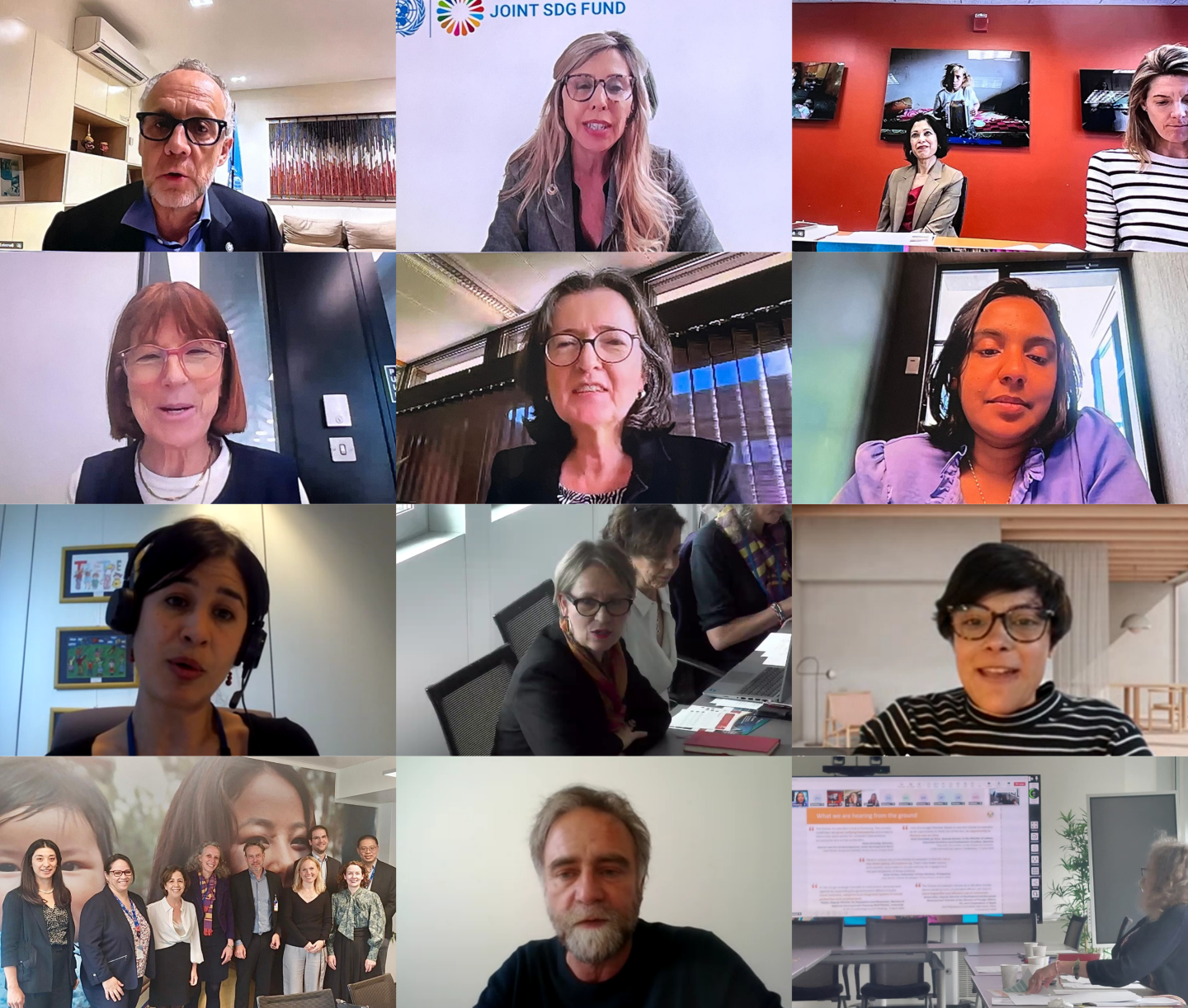The meeting reaffirmed the commitment to coordinated action among the UN, the World Bank, and other partners as key mechanisms for accelerating progress towards decent and productive job creation and universal social protection.

Geneva — Twenty-one donor representatives convened on 8 May 2025 to mobilize support for the ambitious goal of extending social protection and decent and productive job opportunities to millions in low- and middle-income countries. With the support of Germany, France, Ireland, Spain, Belgium, and Korea, the UN and World Bank are spearheading a collaboration to build and strengthen social protection systems and promote decent employment to manage global changes and prepare for future challenges. The meeting reaffirmed the joint commitment, took stock of progress to date, and opened a conversation with other donors to help scale up the initiative for increased results and impact.
The urgent need to close the financing gaps in social protection coverage was at the heart of the discussion. While the ambition for social protection is high, the progress remains slow. Despite historic gains in the last decade, currently 3.8 billion people globally do not have access to any social protection, according to the ILO’s latest World Social Protection report. The World Bank 2025 State of Social Protection report highlights that the need for expanded coverage is particularly acute in low-income countries, where only one quarter of people have social protection coverage, compared to 82 per cent in high-income countries.
The meeting underlined the urgency in scaling up social protection as a proven investment with clear returns to economic development and jobs. “Social protection isn’t just preventing income loss and poverty but about putting people on the ladder of opportunity,” said Iffath Sharif, Global Director, Social Protection and Labour Global Practice, World Bank. Globally, 60 per cent of workers and 80 per cent of enterprises operate in the informal economy, calling for strong, integrated employment and social protection policies that help people earn more, increase access to social insurance and pensions, and support institutions that protect workers and their families.
The Multistakeholder Engagement to implement the Global Accelerator on Jobs and Social Protection for Just Transitions and the World Bank Social Protection Compass (M-GA) partnership seeks to address these challenges by helping countries expand resources and foster resilience among systems and households to forge a durable escape from poverty and vulnerability. By building partnerships between policymakers and the financiers, it promotes coordinated action across social protection systems, skills development, active labour market policies, support for micro and small enterprises to advance formalization for just transitions.
“A partnership like the M-GA with the World Bank helps advance this ambition – to improve national policy coherence, reinforce the link between policy and financing which further creates impactful advocacy and coalition-building,” Mia Seppo, Assistant Director General, Jobs and Social Protection, ILO, highlighted in her remarks.
Real-world progress was demonstrated through compelling testimonies from countries currently implementing the joint UN-WB programmes as part of the M-GA. Jo Scheuer, UN Resident Coordinator in Cambodia, shared how the M-GA, as a joint financing and technical assistance mechanism, aligns well with the country’s needs and government priorities in social protection, employment and skills development; and how its support is strengthening local resilience. Himanshi Jain, Senior Social Protection Specialist at the World Bank spotlighted impactful reforms the M-GA joint programme is undertaking in Uzbekistan, such as developing a roadmap for implementing a new social insurance law, designing and financing key short-term benefits—including maternity, sickness, and unemployment support—and capacity building of the newly established National Agency for Social Protection.
Donors such as Germany, represented by Ariane Hildebrandt, and Ireland, represented by Paula Nolan, reiterated their commitment to investing in solutions that deliver both equity and economic growth, and help countries deliver lasting, inclusive development. “M-GA unites the players in social protection. By providing a helpful nudge to collaborate and helping all the institutions speak the same language, we can boost our efficiency,” said Ariane Hildebrandt, Director General – Global Health and Equality of Opportunity, BMZ, Germany.
Representatives from Belgium, France, and the European Union also reiterated the M-GA approach’s relevance to their development cooperation priorities, emphasizing its alignment with their commitment to promoting social protection and decent work globally.
The event closed with calls to action from Shahra Razavi, Director, Universal Social Protection Department, ILO, encouraging current and new donors to deepen their engagement.
As global challenges intensify, the meeting reinforced that expanding social protection and decent employment opportunities is essential for driving sustainable development, reducing inequality, and strengthening economic resilience. The shared commitment of donors, UN agencies, and the World Bank marks an important step toward aligning policy, financing, and action. Going forward, stronger partnerships and increased investment will be critical to turning ambition into impact—ensuring that no one is left behind in the transition to more just and equitable societies.
With funding from the first round of the M-GA, nine joint UN–World Bank programmes are currently being implemented to support countries in advancing integrated approaches to social protection and employment. Building on this momentum, a second round of M-GA funding launched on 8 May, and will provide up to 20 additional grants to scale up impact and expand country-level engagement.
